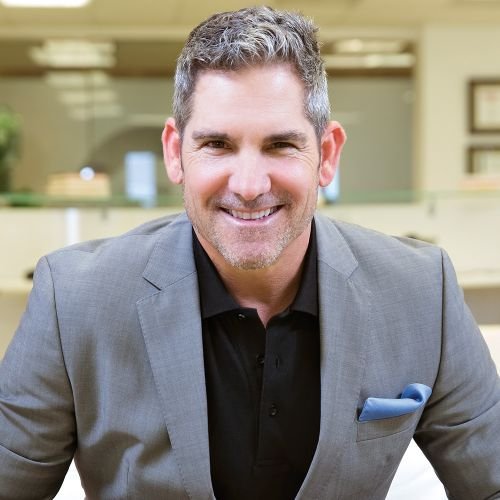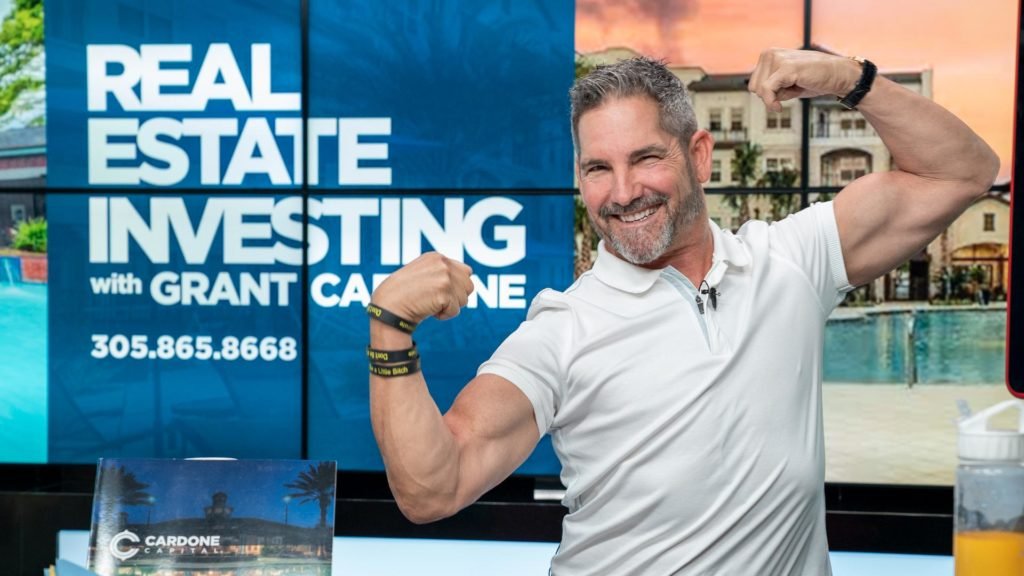10 Mistakes to Avoid in Multi-Unit Real Estate Investing | RR
“Ninety percent of all millionaires become so through owning real estate. More money has been made in real estate than in all industrial investments combined. The wise young man or wage earner of today invests his money in real estate.” – Andrew Carnegie
If one of your aspirations is to become a millionaire, there are probably a lot of people in the same boat as you that are looking at real estate as an option.
…for good reason.
Real estate gives you the best power to scale your investments from thousands of dollars, to hundreds of thousands, to millions and beyond. You hear stories about it happening, it would make sense for you to want to get in on it as well!
But of course, everything has a catch. You can’t just waltz in, buy a property, rent it out, and let the thousands pour in. Real estate takes a lot of work, a lot of learning, and you have to be bold when the time calls for it.

But you can’t be reckless either. Here are 10 mistakes to avoid when you are involved in multi-unit real estate investing, in a breakdown from Grant Cardone’s book, How to Create Wealth Investing in Real Estate.
1. Not Investing
The first mistake people make is oftentimes not investing in the first place. It is better to invest for modest gains, than to never invest at all.
The average family buys what they want with the money they earn. The wealthy family buys assets that will appreciate with the money they earn, until soon, the only money they earn is from their passive income. They no longer have to work to earn their money.
Most people don’t invest because they overthink things, they don’t want to take the risk, or it looks too difficult. Here’s what I have to say:
It IS difficult.
The reason why there are more people in the middle class than there are millionaires, is because it’s easy to be in the middle class. Middle class is what you are told to be. If you are lower-class, then you aren’t working hard enough, if you are upper-class, you are greedy and exploit everyone around you.
Most people that do what they’re told to do buy 401Ks, Roth IRAs, mutual funds, and never invest in anything involving any sort of risk, because they are told it is “wrong”. “You will lose everything”.
Is it risky? Sure. But it is riskier for those who refuse to learn, than those who are continuously learning.
“Risk comes from not knowing what you’re doing.” -Warren Buffett
2. Buying Too Small
The lifeblood of real estate is cash flow.
Cash flow is the single-most important thing in real estate. It can prove to be the difference between riches and bankruptcy. You are not chasing cash, you are not chasing appreciation, you are chasing cash flow.
That monthly income you get every month from your property, is the essence of your real estate business.
There are three reasons that buying too small can disrupt your real estate business:
- Less Cash Flow
- Lower Margin of Safety
- Less Scalability
Less Cash Flow
Buying a quadplex yields more cash flow than a duplex in a similar area.
Buying a 32 unit apartment yields more cash flow than a 24 unit apartment in a similar area.
Obviously, they cost more. Or do they? You need to work to find the good deals, because they’re out there.
Lower Margin of Safety
Most people say that they buy less units because it is a safer. That is, in-fact, far from the truth.
Take this hypothetical scenario down below:
Let’s assume that you have $40,000, ready to go.
There is a duplex for sale for $80,000, which you buy. There are already two tenants, and it is a decent deal of fair value.
Rents are $750 each.
You put 50% down on the property, and receive $1,500 monthly from the tenants. Assuming you pay extra costs, mortgage, etc, let’s say you come home with $500 a month.
$500 a month in positive cash flow provides $6,000 a year, which can go to more investments. Great!
Now let’s take hypothetical scenario #2:
Let’s assume that you have $40,000, ready to go just as before.
There is a quadplex for sale for $160,000, which you buy. There are already four tenants, and it is a decent deal of fair value.
Rents are $750 each.
You put 25% down on the property, and receive $3,000 monthly from the tenants. However, the extra costs are not tripled, like you would expect. Insurance is similar, lawn care is similar, etc.
In most situations, you will bring home about $1,300 a month in positive cash flow.
This is because, if all of the expenses rose along with the higher price, you would still receive a higher income. 2 units gets you $500 in cash flow, 4 units gets you $1,000.
Except, the expenses aren’t rising with the price. It does with some things, such as the mortgage, taxes, etc. But some expenses remain relatively similar, allowing you to earn the extra income.
Which sounds better, $1,300 monthly, or $500? Which would make it easier to cover expenses? Which would give you more room to feel comfortable? Which has a higher margin of safety?
Less Scalability
To piggyback off of the last point, less units = less cash flow. Less cash flow, less buying power. Less buying power, less investing.
It is easier to scale 4 units to 8, than it is to scale 2 units to 5. It is easier to scale 8 units to 16, than 5 units to 11. It is easier to scale 16 units to 32, than 12 units to 26.
If you want to scale, you need to find cash flow. As it was said before, cash flow is the lifeblood of your business. And scalability is the lifeblood of your cash flow. To attain more cash flow, you need to scale up.
3. Single-Family Home Rentals
Most people would think single-family homes are the safest investment, they just yield lower returns for simple buy-and-hold strategies. But is it?
Grant Cardone explains in the book that his first investment was a single-family home. And it was the biggest mistake of his real estate career.
He bought a house for $78,000, and rented it out to a couple of sisters that needed a place to live. Some time went by, and then every homeowner’s nightmare occured:
They said they were moving out.
It is tough to find a tenant on short-term notice, and that’s what Grant was trying to do. Why?
Because he bought a single-family home as a buy-and-hold investment.
1 door? 1 tenant. 1 tenant? RISK.
If that one tenant moves out, suddenly there’s nobody to pay the mortgage. Suddenly, there’s nobody to pay the taxes. Suddenly, there’s nobody to pay the insurance. There is no cash flow coming in, and you are either forced to sell the home, or hope you get a tenant in time.
More doors = more safety.
4. Using Too Much Debt
Grant stresses how easy buys mean lower value.
If you can buy a property with 5% down, so can other people. The easier a property is to get, the more problems that property has. They’re trying to get rid of it for a reason.
If it’s easy to sell now, think about how much easier it will be to sell in the future, when you try to sell!
There are multiple reasons why you shouldn’t take on too much debt in real estate:
- Worse Deals
- Overleveraging
Worse Deals
The deals that you can get for 5-10% down are typically bottom of the barrel, unless you can get seller financing.
Not to mention, the banks will give you higher rates, and higher payments. They will also be less likely to give you a loan.
Whoever your lender is, they will have confidence in you if you show up with 25-50%, versus a measly 5%. How do they know if you can handle a property that is 19X your down payment?
5. Buying On Price and Cap Rate
“If you only buy deals based on the lowest prices or the highest cap rates, you’ll never great great deals. The great deals always come at a premium price and a lower cap rate.” p.103, How to Create Wealth Investing in Real Estate
Oftentimes, a cheap price means cheap quality. Obviously you should look for a good deal, but don’t let the price fool you. A quality property matters more than a great price, much like how a quality company matters more than a cheap company. A quality service matters more than a cheap service.
One works better, and multi-unit real estate investing is no different.
If there is a great price, and nobody is competing for it, you have to wonder what is wrong. Because there’s a reason it’s still on the market.
6. Not Using a Broker
Many rookies make the mistake of not using a broker, and they don’t get the best deals that they can.
Brokers are there for you, and they are your friend. Brokers will find you the best deals, and will secure it for you. Why would you worry about paying a broker, when he’s helping you profit even more than you’re paying him?
Brokers are typically more familiar with the area, and are more efficient in finding deals, both on-and-off market, which gives you access to more properties.
Brokers also serve as a buffer between the buyer and seller, which eases tension on both sides, allowing you to get better deals.
It’s a two-way street, the more the broker helps you win, the more you help them win.
7. Not Looking at Enough Deals
“I look at 100 deals to buy one, so unless you are smarter than me or luckier than me, be prepared to look at that many deals.” -p.109, How to Create Wealth Investing in Real Estate
Robert Kiyosaki, Grant Cardone, all the multi-millionaires in real estate stress that you have to look at many deals before you buy one.
You need to understand the market, understand what is right and wrong in the market, and understand how to recognize a good deal when you see one.
If you examine the right way, them multi-unit real estate investing turns into a full-time gig. Obviously, run it as a side hustle until you build enough substantial passive income, but if you want to make it big, you will go into real estate full-time when you can.
8. Inability to Move to Other Markets
You can only do so much in one market. You can make a good living in one market, but you are missing out on deals in other markets as well. Grant invests in 7 different states, and has done his due diligence in learning the markets in each state.
Not everyone makes money in real estate, because all markets aren’t created equal.
Take Detroit, for example. It used to be a thriving city, but if you would focused all of your efforts there, you have dead money. You’d be selling your home for $1 like everyone else.
9. Not Knowing Your Market
“You need to know every sale, every comp, every rental, what properties are under-rented, what properties are over-leveraged, what that property sold for in the last cycle, the vacancy in your market, and the cost of every expense. Insurance, management, utilities, management fees, the cost to turn, how long it takes to turn, the cost to advertise, which ads work, foot traffic, closing ratios, trailing 12 months of operation, and then you need to know and have relationships with the top 3 controlling brokers in the market to find the best apartment stock in the market.” -p.114, How to Create Wealth Investing in Real Estate
One thing to understand about real estate, is that real estate is not easy. You need to know the ins-and-outs of your market. Most of the top properties aren’t listed on the free sources, they are in the brokers inventory, which is why it is vital to build relationships.
The more you know about the market, the more people you can meet in the market, The more people you meet in the market, the more deals you will gain access to. The more deals you gain access to, the more you will need to know about the market to recognize which opportunity to jump on.
10. Financing
You need financing (debt) to close the deal. If you buy properties with 100% cash, you are losing 300-400% of potential asset value.
Debt gets paid down naturally, which increases equity in the property. The more equity, the more money.
The most important thing about financing are the terms. You need great terms. You need to know underwriting criteria, you need to know the best lenders in your market, and you need to build your reputation with these lenders.
“The lender is not an adversary, it’s your partner.” -p.116, How to Create Wealth Investing in Real Estate
11. Not Buying Through All Cycles
It makes sense to buy at the bottom of the market, and sell at the top, right?
That’s what most people think, and that’s where most people would be wrong. Much like Warren Buffett says, it is much better to hold an investment through the good and bad times than to try and time when it will be good, and when it will be bad. We can’t time what the market will do.
It doesn’t hurt to buy at the top, because as long as you have enough cash flow in the right market, the property will make a new top.
If you really care about building relationships with your brokers, you will buy at the top.. Nobody will take you seriously if you only buy at the bottom, if they even know who you are.
And when the market is bad, you have to be known to get the best deals from brokers. Instead of looking for the highest price, they instead look for buyers with the ability to close quick in hard times. That is where reputation comes into play.
Multi-Unit Real Estate Investing
- Remember, Buy Apartments
- Don’t Go Small
- Avoid the Junk
- Buy The Best Product
- Make Sure You Have Cash Flow
- Take Care of the Property
- Take Care of the Tenants
And most importantly, when you find the deal, move fast.

For those of you wondering, Grant Cardone is the author of the book How to Create Wealth Investing in Real Estate, which was the basis for this article.
Grant Cardone began his real estate investing journey over 30 years ago, with that single-family home I told you about earlier. After that mistake, he wiped his hands clean of single-family homes, and got into multi-family. He has spent the last 25+ years building up a portfolio worth $700M+, and teaches people how to invest. He teaches through books, podcasts, TV, and through action.

After getting out of trouble in his 20s, Grant began learning about real estate, and after the beginner mistakes, he began growing his portfolio massively. He and his wife, Elena, work together to educate younger people about creating generational wealth for them and their families.



